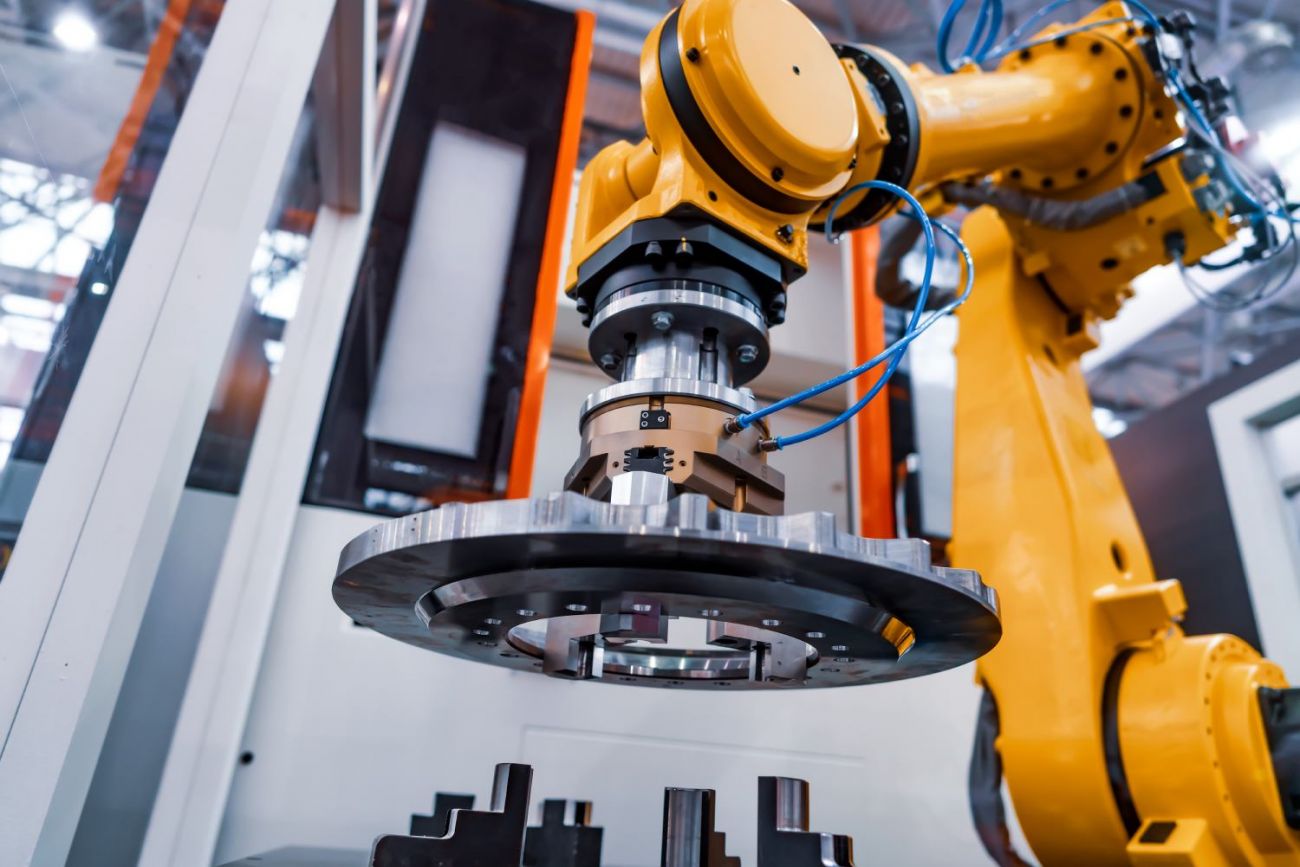The Rise of Robots in Manufacturing

Industrial robots have come a long way in global manufacturing from performing traditional simpler tasks of handling and lifting to more complex such as assembling and packing. IMTMA’s upcoming 7th edition of the ‘Symposium on Automation & Robotics’ will provide deeper insights into these technological advancements that are revolutionizing the manufacturing game.
In the manufacturing ecosystem, industrial robots are increasingly making their presence felt on shop floors across the globe. Robots, traditionally used for tasks such as material handling, picking, and placing, have widened in scope to cater to various skilled and critical applications like welding, painting, sealing, assembly, and packing.
Robots were initially deployed with human safety in mind, especially in hazardous environments with radiation and toxic elements, for handling heavy loads, and in spaces unsafe for human beings. With improved technology, robots now work alongside humans as collaborative robots, also termed as cobots, enhancing productivity, efficiency, and safety in the manufacturing domain.
With industrial automation picking up, robots and cobots are becoming a part of the sub-system of Industry 4.0. Robotization needs human resources skilled in the operation and programming of robots and system integration. Robots can work round-the-clock with no margins for errors, increasing productivity and quality. Also, sensorized and programmable robots can be customized for different applications and environments, simultaneously capturing and providing data, and enabling future decision-making for enhanced productivity.
Global trends and statistics
The global robot-to-human ratio in manufacturing space has been going up for the last five years at a rapid pace. According to the World Robotics 2023 Report by the International Federation of Robotics, the adoption of robotics in factories around the world has been impressive with Asia being ahead of Europe and America. A record 5,53,052 industrial robots were installed in factories around the world with a growth rate of 5 percent year-on-year, as per the report. By region, 73 percent of all newly deployed robots were installed in Asia, 15 percent in Europe, and 10 percent in America.
China was the leader with 2,90,258 units, followed by Japan in second place with 50,413 units and the United States in third position with 39,576 units. European nations also performed well with Germany having 25,636 units, Italy 11,475 units, and France 7,380 units in 2022. In the United Kingdom, post-Brexit industrial robot installations were up by 3 percent to 2,534 units in 2022. Sales of industrial robots in India saw a massive 54 percent increase in 2022, reaching 4,945 units installed as against 3,215 units in 2020.
However, automation and deployment of robotics can at times be disruptive in terms of employability and the overall economy. For example, robotization is perceived as a threat in Bangladesh’s textile industry as it could replace a substantial percentage of the current labor force in the industry. Although the disappearance of some jobs with industrialization has happened in the past, history has revealed that alongside automation, innovation and new jobs have emerged. Workers’ skill sets have been upgraded with new work titles.
India’s initiatives and challenges
| India has been taking concrete steps to widen the scope of artificial intelligence (AI). The Government of India’s ‘India AI’ is an umbrella program that harmonizes existing AI initiatives, from building language models (Digital India Bhashini) for increasing digital accessibility for citizens to skilling programs (YUVAi) demystifying AI for school students, to achieve the common goal of ‘making AI in India and making AI work for India’.The National Strategy on Robotics has identified four priority sectors with the maximum potential to create large-scale socio-economic impact through robotics adoption and to position India as a global leader in robotics across these sectors by 2030. These include Manufacturing, Healthcare, Agriculture, and National Security. |  |
The Union Government is ardently advocating the adoption of robots with the Capital Goods Scheme and through institutions such as the Indian Institute of Technology (IIT) and the Indian Institute of Science (IISc). High import dependence, costly hardware components, and lack of funds for research and development remain primary challenges among Indian manufacturing companies in adopting automation and robotics. It is encouraging to see that some large companies like FANUC, ABB, KUKA, and YASKAWA have initiated projects for made-in-India robots. As more companies embrace this trend, the traditional way of manufacturing will see an overhaul and will set India on the way to becoming an alternative factory in the world.
| Indian Machine Tool Manufacturers’ Association (IMTMA) is organizing the 7th edition of the Symposium on Automation & Robotics on September 24 - 25, 2024, at Hotel Tip Top International in Pune. It will focus on assembly automation, industrial automation and robotics, laser cutting and sheet bending automation, smart manufacturing techniques, appropriate automation, welding automation, and more. |
‘Symposium on Automation & Robotics’
Industries in India need to move from conventional manufacturing techniques to smarter ways of manufacturing involving automation and robotics. To encourage the deployment of robotics in the manufacturing space and disseminate knowledge on the latest developments, the Indian Machine Tool Manufacturers’ Association (IMTMA) is organizing the 7th edition of the Symposium on Automation & Robotics on September 24 - 25, 2024, at Hotel Tip Top International in Pune.
Assembly automation, industrial automation and robotics, laser cutting and sheet bending automation, smart manufacturing techniques, appropriate automation, welding automation, and more will be the topics in focus. Experts from a cross-section of manufacturing industries will make presentations through case studies and technology-related presentations. At the symposium,
IMTMA also recognizes and rewards companies that have excelled in achieving superior performance by implementing automation and robotics in the manufacturing realm. Participating in the event will help augment Indian automation and robotics evolvement.
Source: IMTMA




 Facebook
Facebook.png) Twitter
Twitter Linkedin
Linkedin Subscribe
Subscribe